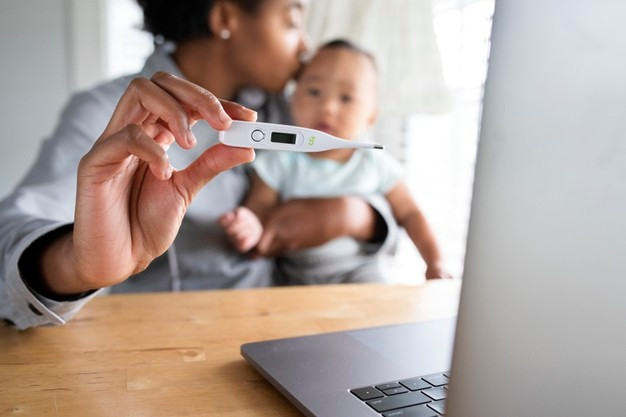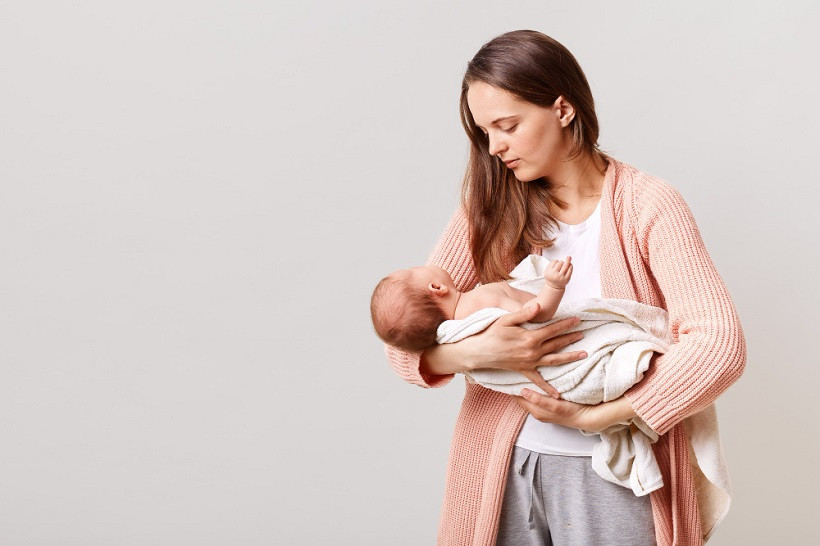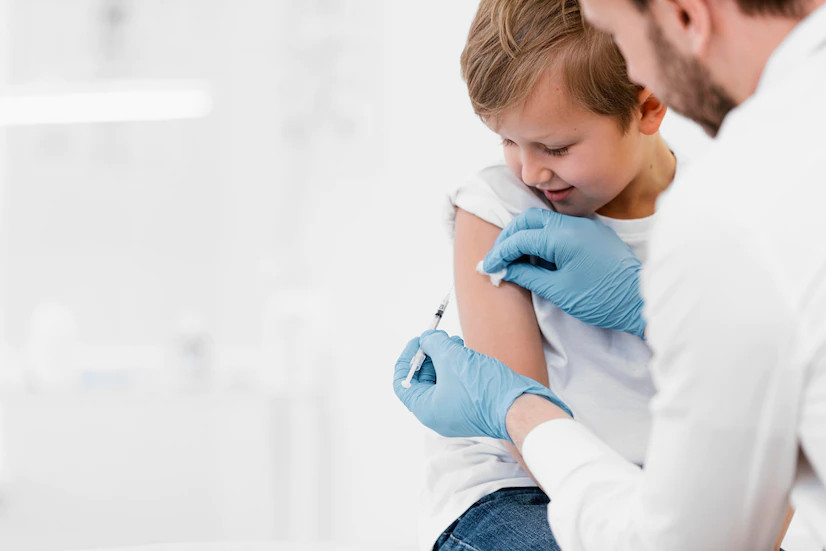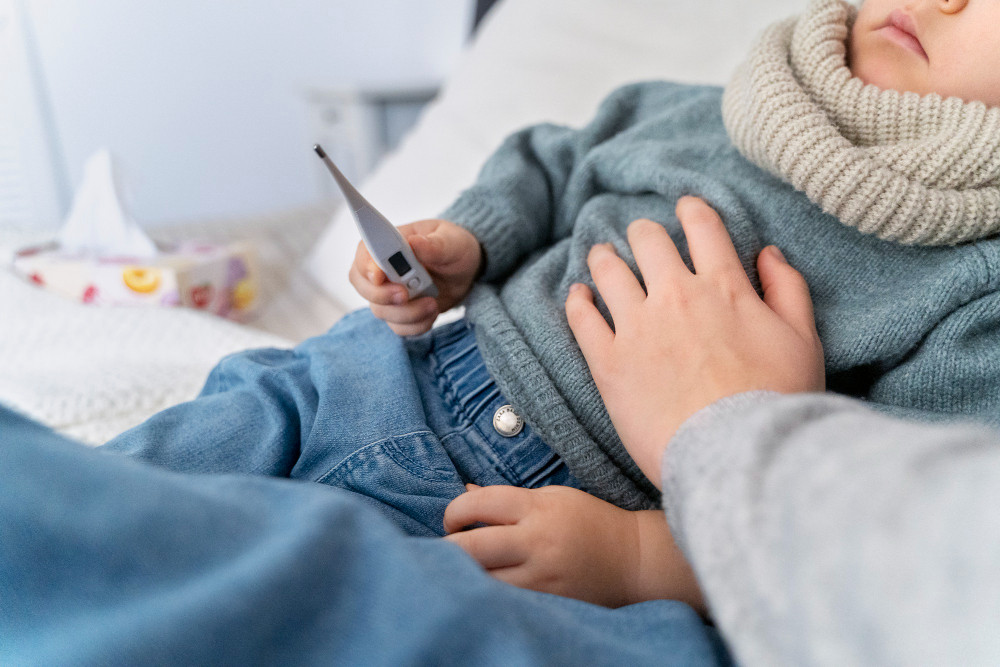For adults, fever may seem like a minor issue that doesn’t require much concern. However, when it happens to a baby, it can be a source of great worry for parents.
Every parent should have a thermometer as an essential tool to monitor their baby’s temperature. It helps determine whether the fever is mild or high, and whether simple measures like breastfeeding are enough or if immediate medical attention is required.
Causes of Fever in Infants
Fever itself is not a disease but a natural defense mechanism of the body to fight off infections caused by viruses or bacteria. However, fever can make a baby feel uncomfortable and cause them to breathe faster than usual.
Several factors can cause fever in babies, including:
- Reaction to vaccinations
- Exposure to hot weather for too long
- Infections such as:
- Pneumonia
- Ear infection
- Influenza
- Cough and sore throat
- Urinary or digestive tract infections
- Meningitis
- Other viral infections
Fever can lead to dehydration, especially if the baby refuses to drink or vomits frequently.
Signs of Dehydration in Infants
- Crying without tears
- Dry mouth
- Fewer wet diapers than usual
What to Do If Your Baby Has a Fever?
For Babies Aged 0-3 Months
If your baby is under 3 months old and has a fever, seek medical attention immediately at a hospital or healthcare facility.
For Babies Older Than 3 Months
- Use a warm compress or bathe the baby with lukewarm water (not cold water).
- Improve air circulation by using a fan to lower the room temperature.
- Dress the baby in light and breathable clothing; avoid layering clothes.
- Increase breastfeeding frequency to prevent dehydration.
For Babies Older Than 6 Months
If needed, consult a doctor before giving ibuprofen to ensure the correct dosage based on the baby’s weight and age. Do not give ibuprofen to babies under 6 months old unless prescribed by a doctor. Never give aspirin to babies, as it may increase the risk of Reye’s syndrome, a rare but serious condition.
When Should You See a Doctor?
Seek immediate medical attention if the fever does not subside and is accompanied by any of the following symptoms:
- Vomiting or diarrhea
- Unexplained rash
- Seizures
- Delirium or confusion
- Excessive sleepiness or extreme fatigue
- Difficulty breathing
- Unconsciousness
- Recent fall or head injury
- Skin wounds or burns
- Pale or blue lips
- Fever above 38°C (100.4°F) or lasting more than 48 hours
A fever in babies can be alarming, but staying calm and attentive will help you respond effectively. Monitor your baby’s temperature frequently and provide comfort as needed.
If you have concerns about managing fever in babies, consult a doctor using the health consultation feature on the Ai Care application, available for download on the App Store or Play Store.
Looking for more information about pregnancy, breastfeeding, women's and children's health? Click here!
- dr Nadia Opmalina
Jessica Timmons (2018). Baby Fever 101: How to Care for Your Child. Available from: https://www.healthline.com/health/parenting/baby-fever-101
Mayo Clinic Staff (2019). Sick baby? When to seek medical attention. Available from: https://www.mayoclinic.org/healthy-lifestyle/infant-and-toddler-health/in-depth/healthy-baby/art-20047793
WebMD (2021). Fever in Babies. Available from: https://www.webmd.com/parenting/baby/fever-in-babies#1
Kids Health (2018). Fevers. Available from: https://kidshealth.org/en/parents/fever.html
Cleveland Clinic (2021). Fever in Babies & Children: When to Worry. Available from: https://health.clevelandclinic.org/kids-fevers-when-to-worry-when-to-relax/












